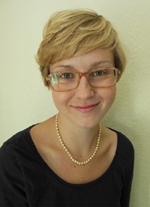Writer’s Lab: #GoScholarGo
Today, I have the pleasure of inviting Dr. Scheg to share her views on the unique type of writing that is dissertation writing. Dr. Abigail Scheg is an Assistant Professor of English at Elizabeth City State University and an Adjunct Dissertation Chair for Northcentral University. She researches and publishes in the areas of composition, online pedagogy, and popular culture. She loves working with doctoral students and is dedicated to creating and participating in networks for doctoral student support. Follow her on Twitter @ag_scheg.
My doctoral program was incredibly supportive; the cohort structure was supportive, the other members of my cohort were wonderful, and the faculty were welcoming and encouraging. The summer workload was more than full-time intensity and all of my cohort members, no matter how much experience they had, were worrying about having “what it takes” to be a doctoral student. In one of our first courses, one from our cohort asked the instructor how long the final paper listed in the syllabus had to be. Her response was, “If you don’t know the answer to that question, then you shouldn’t be a doctoral student.”
We sat there straight faced, taking notes, not making eye contact at one another too scared to admit that none of us knew the answer and none of us knew what she meant by that. After class we got together and asked general questions, “So how long is your paper going to be?”
At the time, this seemed like an incredibly harsh response that upset many of the members of my cohort, myself included. But upon reflection this experience seems to represent a lot of the self-questioning, self-worth, and challenges in the doctoral learning process. We never actually found out what the answer to the paper-length question was, but there seemed to be two answers:
-
You should structure your writing as though you were writing it for a journal article, so follow those constraints of length requirement.
-
All journals are different, so there is no real length requirement; just write as much as you need to write to address your research question.
Although not all of the members of my cohort finished their coursework, it was at that moment that I really began to think about what each member brought to the table. There is a certain level of unnecessary competitiveness in doctoral programs, but everybody has different experiences, interests, and abilities. At some point in the program I felt that I really needed to work on encouraging my classmates/colleagues to do great things. I would try to take notes on what other people were doing so that I could ask them about the progress of their projects; I would try to be cheerful and positive in the midst of seemingly insurmountable workloads; I started to embrace the deep simplicity of encouraging words.
I’m not sure exactly where it started, but I started to write in my emails to colleagues, “Go Scholar Go!” when we would correspond about their projects. It was simple, encouraging, silly, and some people really embraced it. Now that I am finished with my PhD, I still have a number of friends from the program who often use the phrase too. I’ve started using it on Twitter as a supportive hashtag: #GoScholarGo because I’ve found that everyone has more work to do than time to do it. Doctoral students may very well need more hours in the day, but more importantly than that, they need individuals to believe in them when those moments of silent doubt consume their thoughts. And we’ve all been there.
Go Scholar Go.
Share with your peers!

